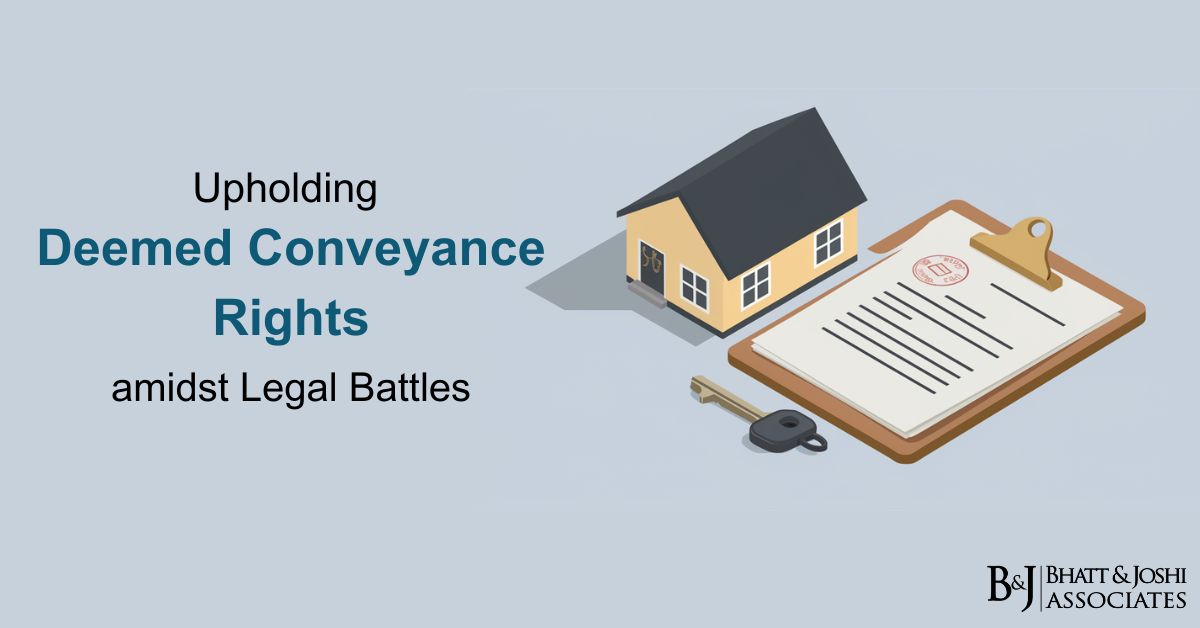
Introduction
The Maharashtra Ownership Flats Act (Regulation of the promotion of construction, sale, management and transfer) Act, 1963 (the Act) aims to protect the interests of flat buyers and regulate real estate transactions. Central to the Act is the concept of conveyance, the formal transfer of property ownership from the promoter to the cooperative housing society (CHS) or legal body of flat buyers. Deemed conveyance, a provision introduced in the Act’s 2008 Amendment, occurs when the promoter fails to execute conveyance, prompting competent authorities to transfer ownership to the society.
Provisions of Section 11 after the 2008 Amendment
The 2008 Amendment strengthened Section 11 of the Act, empowering competent authorities to issue deemed conveyance orders if promoters fail to transfer ownership within the specified timeframe. This amendment addressed cases where promoters withheld conveyance, leading to legal disputes and uncertainties for flat buyers.
Case Overview: Ravi Jagganath Agarwal v/s. Prince Tower CHS Ltd
In the recent case of Ravi Jagganath Agarwal v/s. Prince Tower Co-operative Housing Society Limited, the Bombay High Court ruled on disputes over deemed conveyance rights. Despite ongoing litigations regarding property title and ownership liabilities, the court upheld the Competent Authority’s order granting deemed conveyance to the society. The petitioner challenged this order, arguing that ongoing suits concerning property ownership rendered the deemed conveyance application improper. However, the court ruled in favor of the respondent, emphasizing the society’s right to seek conveyance under Section 11(1) of the Act.
Comparison with Previous Rulings on Deemed Conveyance
The judgment in this case differs from previous rulings, such as Mazda Construction Company vs Sultanabad Darshan CHS Ltd and Tushar Jivram Chauhan vs The State Of Maharashtra, where deemed conveyance orders were set aside due to discrepancies and unresolved disputes. In contrast, the Prince Tower case affirmed the Competent Authority’s power to issue deemed conveyance orders, provided they align with the Act and relevant agreements.
Conclusion: Upholding Deemed Conveyance in Legal Battles
The recent ruling underscores the importance of strict interpretation and enforcement of the Act to prevent abuse of legal procedures and ensure the rightful transfer of property ownership. Despite legal complexities, competent authorities retain the power to issue deemed conveyance orders, facilitating ownership transfer in accordance with legislative intent. However, adherence to agreement terms and fair consideration of pending suits remain crucial to uphold legal principles and protect the interests of all parties involved.













